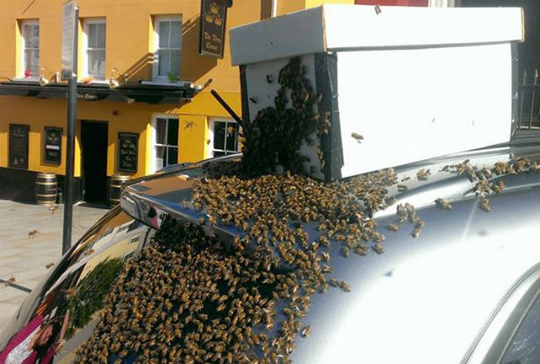In an unprecedented crisis despite Prime Minister Narendra Modi assuring the continuation of essential services like food and groceries, online marketplaces like Flipkart and Amazon along with delivery platforms like Bigbasket, Grofers and FreshToHomes hit a major blockade on Wednesday as local authorities shut warehouses and sent delivery boys back, even harassed them.
Millions of people across cities were left helpless at homes as essential items like fruits and vegetables, dairy and milk, meat and fish etc did not reach their doors despite placing orders well in advance. Later, the orders went dry.
While Grofers' warehouse in Faridabad was closed by the local law enforcement agencies, Bigbasket complained that the police stopped its delivery partners and "some of them were even beaten up by for no fault of theirs".
"We are not operational due to restrictions imposed by local authorities on movement of goods in spite of clear guidelines provided by central authorities to enable essential services. We are working with the authorities to be back soon,' Bigbasket tweeted.
In a statement to IANS, Bigbasket said that it will help to have better coordination between the Centre and state, and between the state and local police to "ensure that our delivery vans and bikes don't get stopped by the police. Bigbasket and bb daily are not taking new orders".
Furious people stormed the social media platforms, writing their plight to NITI Aayog CEO Amitabh Kant on Twitter.
"Sir, all e-commerce are down. Believe me I tried everything (Grofers, Bigbasket, Flipkart, Amazon, Big Bazaar), no delivery till 31st March or Server Down or No Service. Need to think how we can enable them through digital India," tweeted one user.
Kant tweeted back to Bigbasket: "They should give me specifics - State & location. I will act on it by getting in touch with concerned authorities & sorting it out. Govt guidelines exempt them. We will ensure that citizens are not impacted".
Kant also responded to Grofers: "Cold storages & Warehouses as well as delivery of all essentials goods including food, pharma thru E-Commerce are exempted under MHA order. I have spoken to CS & DGP, Haryana . They have taken immediate action to ensure that supply chains efficiently function for the citizens".
The subscription-based hyperlocal delivery startup FreshToHome sent messages to its customers, saying that despite the government declaring food delivery as essential, "we are facing hardships in continuing our operations".
"Please bear with us as we are working hard to unblock local authority hurdles," said the FreshToHome team.
Reports later surfaced that the Department for Promotion of Industry and Internal Trade (DPIIT) has initiated talks with the state Chief Secretaries asking them not to restrict movement of people engaged in home delivery of essential items, mentioned in the list of exempted items circulated by the Home Ministry.
Meanwhile, Flipkart said it has temporarily suspended its operations and services - including grocery items. The marketplace has decided to halt all orders from March 25 for all three supply chains -- groceries, non-large goods and large items.
"Flipkart has temporarily suspended orders as we assess the possibilities of operating in the lockdown. We are prioritising the safety of our delivery executives and seeking the support of the local governments and police authorities to meet the needs of our customers as they stay home during this lockdown," Rajneesh Kumar, Chief Corporate Affairs Officer, Flipkart, said in a statement.
E-commerce giant Amazon said the company has to "temporarily stop taking orders and disable shipments for lower-priority products.
"For all pending customer orders on lower-priority products, we are reaching out to customers and giving them a choice to cancel their orders, and receive a refund for prepaid items," said the company.
Witnessing a surge in demand, supermarket chain Biz Bazaar entered the fray, with launching doorstep delivery services in major cities like Delhi, Mumbai, Bengaluru and Gurugram.
However, within no time, Big Bazaar was flooded with calls, forcing the company to issue a statement, saying that "In light of the recent announcement, we are receiving an unprecedented number of requests for doorstep delivery. There could be a delay due to the restrictions on movements".
Already battling massive surge in demand, the online delivery platforms faced other issues too, including zero access to several high-rises across the country which have gone under complete lockdown with all entry and exit gates locked.






Comments
Add new comment